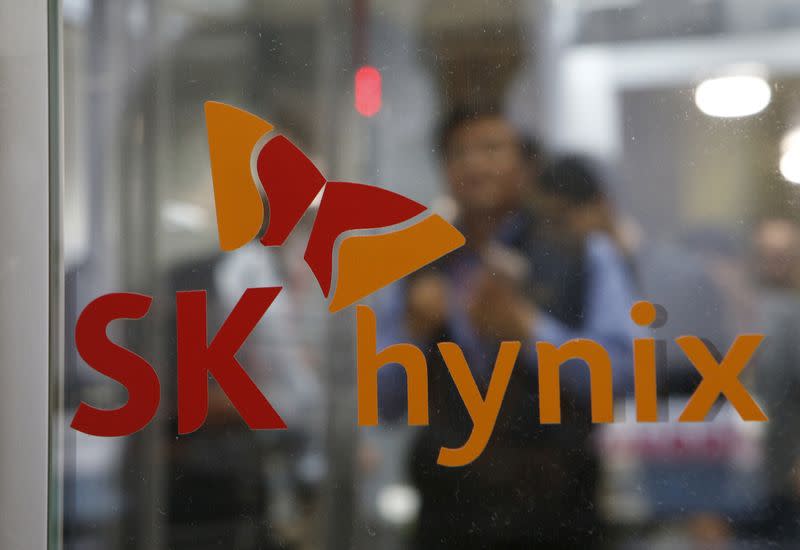Nvidia supplier SK Hynix expects full chip recovery after strong earnings on AI boom

By Joyce Lee and Heekyong Yang
SEOUL (Reuters) -South Korea's SK Hynix Inc said it expected a full recovery in memory chips on AI demand, posting its highest profit in nearly two years on sales of advanced DRAM chips with high bandwidth memory (HBM) for use in generative AI chipsets.
The world's second-biggest memory chipmaker reported a 2.89 trillion won ($2.1 billion) operating profit for the March quarter versus a loss of 3.4 trillion won a year earlier, beating a 1.88 trillion won projection by LSEG SmartEstimate weighted towards analysts that are more consistently accurate.
"The memory market is entering into full recovery cycle with ongoing strength of AI demand," SK Hynix said.
With chipmakers focusing production capacity more on chips to meet AI-driven demand, there may be a shortage of regular memory chips for smartphones, personal computers and network servers by year-end if demand for tech devices exceeds expectations, Hynix said.
Thursday's result marks Hynix's second-highest profit for the January-March quarter ever, a quick turnaround from heavy losses incurred in the year through the third quarter of 2023 as the global memory chip sector went through its worst downturn in decades, hit by a slump in demand for tech devices post-COVID.
AI BOOM
Among memory chipmakers, SK Hynix is the biggest beneficiary of the explosive increase in AI adoption, as it became the main supplier of HBM chips for Nvidia's graphic processing units that train AI systems.
SK Hynix has been the sole supplier of HBM3 to Nvidia, which has 80% of the market for AI chips, and began mass production of the latest version of HBM chips, called HBM3E, with shipments going to the U.S. firm.
Rival Micron, however, also said its HBM chips were sold out for 2024 and a majority of its 2025 supply was already allocated, and industry No.1 Samsung Electronics plans to ship its latest and most powerful HBM chips in the third quarter.
"Competition in HBM will intensify, sales prices will fall, and SK Hynix's market share will likely fall from the second half of this year," said Pak Yuak, analyst at Kiwoom Securities.
To stay ahead, SK Hynix announced this month a $3.87 billion investment to build an advanced chip packaging plant in Indiana with an HBM chip line, and a 5.3 trillion won investment to build a new South Korean DRAM chip factory with focus on HBMs.
It will collaborate with TSMC to develop the next version of HBM chips, called HBM4, as well as chip packaging that can produce custom HBM chips.
Its NAND flash chip business swung to profit in the first quarter, as demand for enterprise solid-state drives (eSSDs) spiked from on-premises AI data centres wanting storage drives that can handle heavy workloads and consume less power.
SK Hynix said its plant in Dalian, China, is producing 144-layer and 192-layer NAND flash chips that will respond to this new AI-driven demand.
($1 = 1,374.6200 won)
(Reporting by Joyce Lee and Heekyong Yang; Editing by Kim Coghill, Sonali Paul and Tom Hogue)


